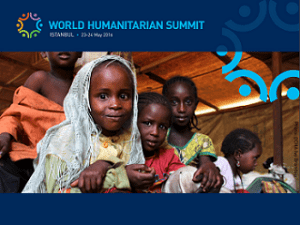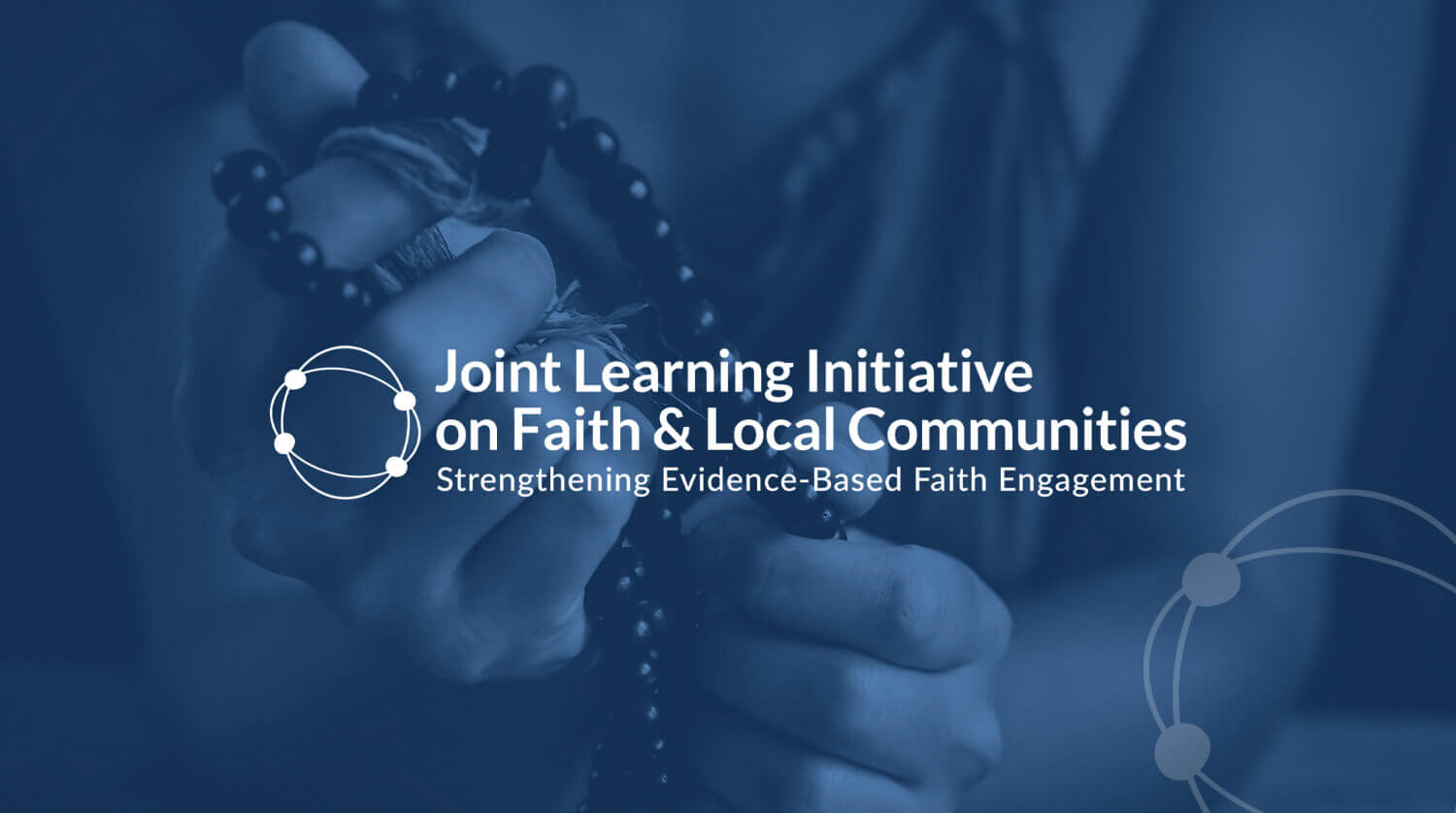Dr. Alastair Ager, QMU Edinburgh and JLIF&LC Resilience Co-Chair, led the production of five evidence briefs on the contributions of religious communities to humanitarian response. To access the briefs and more information about the JLIF&LC Side Event on evidence at the World Humanitarian Summit, please visit: www.jliflc.com/whs
 Early on in my spell working for the UK Department for International Development (DFID) as a Senior Research Manager I was involved in writing a briefing paper for the then Secretary of State for International Development, Hilary Benn. An early draft of my paper received more ‘red pen’ annotations than I had put on any of my students papers for years. The criticism wasn’t about my analysis. It was rather that my academic training had equipped me to identify a multitude of issues and reflect on the complexities of all options, but not to plot the most appropriate way forward given all those uncertainties. I was strong on collating evidence, weak on specifying action.
Early on in my spell working for the UK Department for International Development (DFID) as a Senior Research Manager I was involved in writing a briefing paper for the then Secretary of State for International Development, Hilary Benn. An early draft of my paper received more ‘red pen’ annotations than I had put on any of my students papers for years. The criticism wasn’t about my analysis. It was rather that my academic training had equipped me to identify a multitude of issues and reflect on the complexities of all options, but not to plot the most appropriate way forward given all those uncertainties. I was strong on collating evidence, weak on specifying action.
I have recalled that experience many times in subsequent years, and did so again recently during the process of collating a number of ‘evidence briefs’ regarding humanitarian engagement with and by local faith communities ahead of the World Humanitarian Summit. The briefs reflect my subsequent socialization into the world of humanitarian policy and advocacy – and the influence of over twenty co-authors involved in their collation – in specifying concrete actions that would improve partnership with local faith communities and thereby the timeliness, coordination and appropriateness of humanitarian response.
We are not short of recommended actions. Indeed, I am confident we will be knee-deep in them on this and many other issues during the course of the summit. The UN Secretary-General has called for action to address our shared responsibility in protecting our shared humanity. Action will, and should, be clearly central to the agenda.
However, amidst the clamour of comms teams and advocacy groups positioning ‘key messages’ for action, I have sensed afresh the value of the academic contribution of evidence. One of the major reasons that the humanitarian system needs the sort of overhaul that many attending the World Humanitarian Summit are calling for is a lack of imagination. If we view the world, and the institutional frameworks to manage crisis, through a lens that no longer fits contemporary realities we are doomed to repeat past failures. Evidence provided by research is the basis for a reality check. Critically, evidence often doesn’t directly inform action – rather, it informs imagination that then serves to drive reformed action.
For those eager to support the localization of humanitarian response, the JLIF&LC evidence briefs are full of evidence regarding the contribution of local faith communities in humanitarian crisis…and of the international community capitalizing upon, but all too often ignoring, disrupting and, on occasions, subverting such contributions. This evidence points towards actions, yes. But its greatest contribution may be to inform the imagination of a global humanitarian system that is rooted in local response, with international efforts directed at its support rather than management.
Indeed, engagement with religion puts us in a territory where the power of prophetic imagination is well recognized. As we approach the summit, contemplating the challenges of protecting humanity in a globalized world of hyper-diversity, we would do well to reflect on the words of Walter Brueggemann:
[1] BRUEGGEMANN, W. (2001) The Prophetic Imagination. Minneapolis: Augsburg Fortress. p. 40.Imagination is a danger… it is the vocation of the prophet to keep alive the ministry of imagination to keep on conjuring and proposing alternative futures to the single one the king wants to urge as the only thinkable one [1]

Alastair Ager is Director of the Institute for Global Health and Development, Queen Margaret University, Edinburgh and Professor of Population and Family Health, Columbia University. He is Co-Chair of the JLLIF&LC Resilience Learning Hub and co-author (with Joey Ager) of Faith, Secularism and Humanitarian Engagement (Palgrave 2015).






